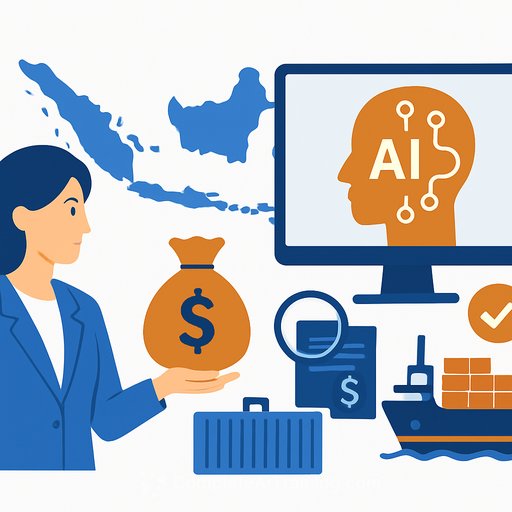Singapore's Strategic Diversification: AI, Pharmaceuticals, and Finance as Economic Shields
Singapore is actively diversifying its economy by focusing on artificial intelligence (AI), pharmaceuticals, and finance. This approach helps the city-state mitigate risks from global trade fragmentation and geopolitical tensions. With significant public and private investments, Singapore is positioning itself for sustained growth beyond traditional sectors.
The AI Sector: Building Resilience Through Innovation
Launched in 2023, Singapore’s National AI Strategy 2.0 commits S$1.6 billion in government funding alongside S$26 billion from private investors. Key initiatives include the S$500 million Enterprise Compute Initiative and the S$300 million National Quantum Strategy, both targeting AI and quantum computing leadership.
The Monetary Authority of Singapore (MAS) has added S$100 million to enhance AI and quantum capabilities within the financial sector. Programs such as PathFin.ai and the Veritas Framework promote ethical AI usage, attracting global fintech companies. For finance professionals, this opens opportunities to invest in AI infrastructure, quantum startups, and fintech firms that comply with regulatory frameworks.
Pharmaceuticals: Shifting Focus to High-Value Biosciences
Singapore is moving away from traditional manufacturing vulnerable to external tariffs, emphasizing biosciences driven by AI-based drug discovery and personalized medicine. The government supports research and development and facilitates partnerships with global pharma leaders to accelerate innovation.
This shift is timely, given the fragmentation of global supply chains. Singapore aims to become a regional hub for pharmaceutical research, offering investors exposure to companies that combine AI with drug development, especially those focusing on personalized treatments aligned with demographic trends.
Finance: Strengthening Stability and Ethical Practices
The financial sector remains a pillar of Singapore’s economy but is evolving beyond its traditional strengths. Enhancements under the Veritas Framework and FSTI 3.0 promote ethical, transparent, and resilient financial institutions.
Major banks like DBS and OCBC are adopting generative AI to improve efficiency and customer experience. This blend of stability and innovation makes these institutions attractive options for investors seeking growth amid market volatility.
Talent and Infrastructure: Foundations for Long-Term Growth
Singapore’s growth strategy heavily relies on attracting and developing talent. Initiatives such as the SG Digital Scholarship and AI Centres of Excellence aim to triple the AI workforce by 2029. Collaborations with technology leaders like AWS, Google, and Microsoft ensure the city-state’s digital infrastructure remains competitive.
For finance professionals, supporting companies aligned with these talent development efforts—such as edtech and AI training providers—can offer promising investment avenues. Explore relevant AI training resources at Complete AI Training.
Managing Geopolitical Risks Through Regional Engagement
Singapore leverages its position as a gateway to Southeast Asia’s 700 million consumers by shaping regional AI governance, including contributions to the ASEAN Guide on AI Ethics. This strategy reduces dependence on U.S.-China trade dynamics and tariffs.
Investors should consider Singapore-listed companies with strong regional operations, particularly in sectors like logistics, technology, and healthcare, which benefit from this geopolitical diversification.
Key Investment Opportunities
- AI Infrastructure and Fintech: Companies such as Singtel and Grab offer exposure to telecom-backed AI services and tech-driven financial solutions.
- Pharmaceutical Innovation: Focus on firms advancing AI-driven R&D pipelines, including regional pharma ETFs and banks like United Overseas Bank (UOB) involved in healthcare financing.
- Financial Resilience: DBS and OCBC provide a balance of reliability and AI-enabled growth.
- Talent-Oriented Sectors: Edtech platforms and AI training providers aligned with Singapore’s workforce development initiatives.
Conclusion
Singapore’s proactive diversification through AI, pharmaceuticals, and finance offers a clear example of economic foresight. By reducing reliance on vulnerable sectors and investing in future-ready industries, the city-state is maintaining stability amid global uncertainty.
For finance professionals, this approach highlights the value of combining innovation with regulatory alignment and talent development. Singapore’s strategy illustrates how targeted investments can create resilient portfolios even during economic downturns.
Your membership also unlocks:






